
0
+
Google Reviews

0
+
4.5 (3146 Ratings)
A Linux and cloud combo refers to the strategic combination of the Linux operating system with cloud computing services.This combo is highly favored by businesses and developers looking to harness the power of Linux’s reliability and cloud computing’s scalability. It allows organizations to build, deploy, and manage applications efficiently, leveraging the strengths of Linux while taking advantage of the cloud’s flexibility and resources


Curriculum Designed by Experts
Red Hat® Enterprise Linux® 8 includes three Modules :
RHCSA –
RHCE –
Total duration : 80 hrs of training (90% Practical & 10% Theory)
Red Hat System Administration I provides a foundation for students wishing to become full-time Linux system administrators by introducing key command line concepts and other enterprise-level tools. These concepts are further developed in the follow-on course, Red Hat System Administration II (RH134).
Prerequisites :
There are no formal prerequisites for this course; however, previous operating system administration experience will be very beneficial.
Describe and define open source, Linux distributions, and Red Hat Enterprise Linux.
Access the command line
Log into a Linux system and run simple commands using the shell.
Manage files from the command line
Copy, move, create, delete, and organize files while working from the bash shell.
Get help in Red Hat Enterprise Linux
Resolve problems by using local help systems.
Create, view, and edit text files
Manage text files from command output or in a text editor.
Manage local users and groups
Create, manage, and delete local users and groups, as well as administer local password policies.
Control access to files
Set Linux file system permissions on files and interpret the security effects of different permission settings.
Monitor and manage Linux processes
Evaluate and control processes running on a Red Hat Enterprise Linux system.
Control services and daemons
Control and monitor network services and system daemons using systemd.
Configure and secure SSH
Configure secure command line service on remote systems, using OpenSSH.
Analyze and store logs
Locate and accurately interpret logs of system events for troubleshooting purposes.
Manage networking
Configure network interfaces and settings on Red Hat Enterprise Linux servers.
Archive and transfer files
Archive and copy files from one system to another.
Install and update software
Download, install, update, and manage software packages from Red Hat and yum package repositories.
Access Linux files systems
Access, inspect, and use existing file systems on storage attached to a Linux server.
Analyze servers and get support
Investigate and resolve issues in the web-based management interface, getting support from Red Hat to help solve problems.
Review the content covered in this course by completing hands-on exercises.
Impact on the organization :
This course is intended to develop the skills needed for basic administration and configuration of Red Hat Enterprise Linux. This course introduces key command line concepts and enterprise-level tools, laying the foundation for the rapid deployment of Red Hat Enterprise Linux. The curriculum also introduces the basic administration skills needed for resolving configuration issues and integrating Red Hat Enterprise Linux systems with other existing environments.
This offering lays the foundation for secure user and group administration, and develops skills that allow administrators to use available storage solutions more efficiently and securely. This course is the first of a two-part series that turns a computer professional who knows nothing about Linux into a fully capable Linux administrator.
Red Hat has created this course in a way intended to benefit our customers, but each company and infrastructure is unique, and actual results or benefits may vary.
Impact of this training :
As a result of attending this course, you should be able to perform essential Linux administration tasks, including installation, establishing network connectivity, managing physical storage, and basic security administration.
You should be able to demonstrate these skills:
System Administration II (RH134) –
This module goes deeper into enterprise Linux administration including file systems and partitioning, logical volumes, SELinux, firewalling, and troubleshooting. Attending both Red Hat System Administration I and Red Hat System Administration II can help you in your preparation for the Red Hat Certified System Administrator exam (EX200).
Outline for this course :
Course description :
Focuses on the key tasks needed to become a full-time Linux administrator
Red Hat System Administration II (RH134) builds upon and lends context to the foundational knowledge established in Red Hat System Administration I (RH124). This follow-on course demonstrates more detailed use cases for Red Hat® Enterprise Linux®, preparing you for the Red Hat Certified System Administrator exam (EX200).
This course is based on Red Hat Enterprise Linux 8.
Course content summary :
Audience for this course :
This course is geared toward Windows system administrators, network administrators, and other system administrators who are interested in supplementing current skills or backstopping other team members, in addition to Linux system administrators who are responsible for these tasks:
Prerequisite(s) for this course :
Course description :
Learn how to automate Linux system administration tasks with Ansible
Red Hat System Administration III: Linux Automation with Ansible (RH294) teaches the skills needed to manage large numbers of systems and applications efficiently and consistently. You will learn the techniques needed to use Ansible® to automate provisioning, configuration, application deployment, and orchestration.
This course is based on Red Hat® Enterprise Linux® 8 and Red Hat Ansible Engine 2.8.
Course Content Summary :
Outline for this course :
Impact on the organization
IT automation is key to managing large numbers of systems and applications efficiently and consistently at scale. This course develops the skills needed to efficiently operate and more easily scale the organization’s dynamic IT infrastructure, accelerate application time to value, and rapidly adapt and implement needed innovation through DevOps practices.
Red Hat has created this course in a way intended to benefit our customers, but each company and infrastructure is unique, and actual results or benefits may vary.
Impact on the individual
As a result of attending this course, you should be able to use Ansible for the purpose of automation, configuration, and management. You should be able to demonstrate these skills:
Recommended next exam or course
Our Specialty :
| Getting Started : |
| Course Introduction |
| About the Training Architect |
| Working as a Solutions Architect |
| Creating an AWS Account, AWS Free Tier, Usage Tracking, and Billing Widget |
| Access Management |
| Shared Responsibility/Security Model |
| Service Models |
| High Availability vs. Fault Tolerance |
| RPO vs. RTO |
| Scaling |
| Tiered Application Design |
| Encryption |
| Architecture Odds and Ends |
| Architecture 101 |
| AWS Architecture : |
| AWS Accounts |
| AWS Physical and Networking Layer |
| Well-Architected Framework |
| Elasticity |
| AWS Architecture 101 |
| AWS Product Fundamentals : |
| Console Tour and Navigation |
| Introduction to S3 |
| Introduction to CloudFormation |
| Hands-on Labs |
| Getting Started with CloudFormation |
| AWS Product Fundamentals |
| IAM (Identity and Access Management) : |
| IAM Essentials |
| IAM Policies |
| IAM Users |
| IAM Groups |
| IAM Access Keys |
| Securing Your Account — Creating an IAM User and Setting Up the CLI |
| IAM Roles |
| IAM Essentials |
| Multi-Account Management and Organizations : |
| AWS Organizations |
| Role Switching Between Accounts |
| Multi-Account Management and Organizations |
| Server-Based Compute (EC2) Fundamentals : |
| EC2 Architecture: Part 1 |
| EC2 Architecture: Part 2 |
| Instance Types and Sizes |
| EC2 Storage Architecture: Part 1 |
| EC2 Storage Architecture: Part 2 |
| EBS Snapshots |
| Security Groups |
| Instance Metadata |
| Hands-on Labs |
| Creating and Working with an EC2 Instance |
| Server-Based Compute (EC2) Fundamentals |
| Server-Based Compute (EC2) Intermediate : |
| AMI |
| Bootstrap |
| Instance ENI, IP, and DNS: Part 1 |
| Instance ENI, IP, and DNS: Part 2 |
| Instance Roles |
| Server-Based Compute (EC2) Intermediate |
| Using EC2 Roles and Instance Profiles |
| Using AWS Tags and Resource Groups |
| Server-Based Compute (EC2) Advanced : |
| EBS Volume and Snapshot Encryption |
| EBS Optimization, Enhanced Networking, and Placement Groups |
| EC2 Billing Models: Part 1 – Spot and Spot Fleet |
| EC2 Billing Models: Part 2 – Reserved Instances |
| Dedicated Hosts |
| Server-Based Compute (EC2) Advanced |
| Serverless Compute (Lambda) : |
| What Are APIs and Microservices? |
| Serverless and Event-Driven Architectures |
| Lambda Essentials: Part 1 |
| Lambda Essentials: Part 2 |
| API Gateway Essentials: Part 1 |
| API Gateway Essentials: Part 2 |
| Step Functions |
| Serverless Compute (Lambda) |
| Docker Essentials |
| ECS |
| Container-Based Compute and Microservices |
| Networking Fundamentals : |
| Introduction |
| Seven-Layer OSI Model: Part 1 |
| Seven-Layer OSI Model: Part 2 |
| IP Addressing Basics |
| Subnetting |
| IP Routing |
| Firewalls |
| Proxy Servers |
| Networking Fundamentals |
| Virtual Private Cloud (VPC) : |
| Virtual Private Cloud (VPC) and Subnets: Part 1 |
| Virtual Private Cloud (VPC) and Subnets: Part 2 |
| Routing and Internet Gateway |
| Bastion Host/JumpBox |
| NAT, NAT Instance, and NAT Gateway: Part 1 |
| NAT, NAT Instance, and NAT Gateway: Part 2 |
| Network ACLs |
| Hands-on Labs |
| Designing and Building a Custom VPC from Scratch |
| Virtual Private Cloud (VPC) |
| Advanced VPC : |
| VPC Peering: Part 1 |
| VPC Peering: Part 2 |
| VPC Endpoints: Part 1 |
| VPC Endpoints: Part 2 |
| IPv6 within AWS |
| Egress-Only Gateway |
| Hands-on Labs |
| Implementing VPC Peering on AWS |
| Advanced VPC |
| DNS 101 |
| Domain Registration |
| Private vs. Public Hosted Zones |
| Record Set Types |
| Health Checks |
| Global DNS (Route 53) Fundamentals |
Global DNS (Route 53) Advanced : |
| Routing Policy: Simple |
| Routing Policy: Failover |
| Routing Policy: Weighted |
| Routing Policy: Latency |
| Routing Policy: Geolocation |
| Global DNS (Route 53) Advanced |
S3 Architecture and Features : |
| Permissions |
| Transferring Data to S3 |
| Encryption |
| Static Websites and CORS |
| Object Versioning |
| Presigned URLs |
| Hands-on Labs |
| Creating a Static Website Using Amazon S3 |
S3 Performance and Resilience : |
| Storage Tiers/Classes |
| Lifecycle Policies and Intelligent-Tiering |
| Cross-Region Replication (CRR) |
CloudFront : |
| CloudFront Architecture: Part 1 |
| CloudFront Architecture: Part 2 |
| OAI |
| EFS Fundamentals: Part 1 |
| EFS Fundamentals: Part 2 |
| Storage and Content Delivery |
| Database Fundamentals : |
| Database Models |
| SQL — RDS : |
| RDS Essentials: Part 1 |
| RDS Essentials: Part 2 |
| RDS Backups and Restore |
| RDS Resiliency: Multi-AZ |
| RDS Read Replicas |
| Database Fundamentals and SQL — RDS |
| SQL — Aurora : |
| Aurora Essentials: Part 1 |
| Aurora Essentials: Part 2 |
| Parallel Queries and Aurora Global |
| Aurora Serverless Essentials: Part 1 |
| Aurora Serverless Essentials: Part 2 |
| SQL — Aurora |
| NoSQL : |
| DynamoDB Essentials: Part 1 — Tables and Items |
| DynamoDB Essentials: Part 2 — Query and Scan |
| DynamoDB Essentials: Part 3 |
| DynamoDB Performance and Billing |
| DynamoDB Streams and Triggers |
| DynamoDB Indexes: Part 1 — LSI |
| DynamoDB Indexes: Part 2 — GSI |
| NoSQL |
| In-Memory Caching : |
| DAX |
| ElastiCache |
| In-Memory Caching |
| Load Balancing and Auto Scaling : |
| Load Balancing Fundamentals |
| Classic Load Balancers and Health Checks: Part 1 |
| Classic Load Balancers and Health Checks: Part 2 |
| Classic Load Balancers and Health Checks: Part 3 |
| Application Load Balancers: Part 1 |
| Application Load Balancers: Part 2 |
| Network Load Balancers |
| Launch Templates and Configurations |
| Auto Scaling Groups: Part 1 |
| Auto Scaling Groups: Part 2 |
| Hands-on Labs |
| Implementing an Auto Scaling Group and Application Load Balancer in AWS |
| VPC VPN (IPsec) |
| Direct Connect Architecture |
| When to Pick Direct Connect vs. VPN |
| Snow* : |
| Snowball, Snowball Edge, and Snowmobile |
| Data and DB Migration : |
| Storage Gateway 101 |
| Database Migration Service 101 |
|
Identity Federation and SSO : |
| What Is Identity Federation? |
| When to Use Identity Federation |
| Hybrid and Scaling |
| Application Integration : |
| Simple Notification Service (SNS) |
| Simple Queue Service (SQS): Part 1 |
| Simple Queue Service (SQS): Part 2 |
| Elastic Transcoder |
| Application Integration |
| Analytics : |
| Athena |
| Elastic MapReduce (EMR) |
| Kinesis and Firehose |
| Redshift |
| Analytics |
| Logging and Monitoring : |
| CloudWatch |
| CloudWatch Logs |
| CloudTrail |
| VPC Flow Logs |
| Hands-on Labs |
| Custom Logging Using CloudWatch and CloudWatch Logs |
| Hands-on Labs |
| Working with AWS VPC Flow Logs for Network Monitoring |
| Logging and Monitoring |
| Operations : |
| CloudWatch Events |
| KMS Essentials: Part 1 |
| KMS Essentials: Part 2 |
| Deployment : |
| Elastic Beanstalk |
| OpsWorks |
| Operations and Deployment |
| The Exam : |
| How to Prepare for the Real Exam |
| AWS Solutions Architect Associate (SAAC01) – Final Practice Exam |
| Course Features : |
| This course can help prepare you for a certification exam. |
| Earn a Certificate of Completion |
| When you complete this course, you’ll receive a certificate of completion as proof |
Monitoring and Alerting:
Check AWS CloudWatch dashboards and metrics for any abnormalities or issues with system performance, resource utilization, or application health.
Review CloudWatch alarms and notifications to identify any alerts that require immediate attention or investigation.
Incident Response and Troubleshooting:
Respond to alerts and incidents by investigating the root cause of issues and taking appropriate actions to resolve them.
Troubleshoot system errors, performance bottlenecks, and connectivity issues across AWS services and resources.
Coordinate with cross-functional teams, such as development, operations, and security, to resolve complex issues and outages.
Infrastructure Management:
Provision, configure, and manage AWS resources, including EC2 instances, S3 buckets, RDS databases, VPCs, and IAM users.
Monitor resource usage and capacity to ensure adequate provisioning and optimize resource allocation based on workload demands.
Security and Compliance:
Review and update security policies, IAM roles, and access controls to ensure compliance with security best practices and organizational policies.
Conduct security audits and assessments to identify and remediate vulnerabilities, misconfigurations, and security risks in AWS environments.
Implement encryption, data protection, and network security measures to safeguard sensitive data and prevent unauthorized access.
Backup and Disaster Recovery:
Verify the status and integrity of backups, snapshots, and replication processes for critical data and applications.
Perform regular tests and drills of disaster recovery (DR) plans and procedures to validate their effectiveness and readiness for restoring services in case of a disaster.
Cost Management and Optimization:
Monitor AWS spending and usage using cost management tools (e.g., AWS Cost Explorer, AWS Budgets) to track expenses and identify cost-saving opportunities.
Review cost allocation tags, reserved instance utilization, and billing reports to optimize resource utilization and reduce unnecessary expenses.
Automation and Scripting:
Develop and maintain automation scripts, AWS CLI commands, and AWS SDK integrations to streamline routine tasks and workflows.
Implement infrastructure as code (IaC) practices using tools like AWS CloudFormation or Terraform to automate resource provisioning and configuration.
Boost your career with Cost Management skills through our SAP S/4 HANA FICO Course Training. Learn to streamline financial processes, improve data accuracy, and enhance decision-making. Enroll in SAP S/4 HANA FICO Course Certification today to gain hands-on expertise and advance your career!
Unlock your potential with SAP S/4 HANA FICO Course Training! Gain expertise in finance and controlling, opening doors to roles like SAP FICO Consultant, Financial Analyst, or SAP Project Manager. Enroll for certification today and boost your career with hands-on, industry-relevant training!
Cloud adoption for SAP S/4 HANA FICO course training is crucial as businesses transition to digital landscapes. Mastering SAP S/4 HANA FICO through our expert-led certification course ensures you gain in-demand skills to optimize financial processes in the cloud. Enroll now to future-proof your career!
Scalability and flexibility in SAP S/4 HANA FICO course training empower experts to easily manage the expanding amount of financial data. Our certification course ensures you adapt to evolving business needs. Enroll today and unlock the skills to manage scalable, flexible financial systems efficiently!
Enhance your expertise in Security and Compliance with our comprehensive SAP S/4 HANA FICO Course Training. Learn everything there is to know about risk mitigation, regulatory compliance, and financial data security. Enroll in the SAP S/4 HANA FICO Course Certification to advance your career in secure financial management today!
Mastering SAP S/4 HANA FICO equips you with in-demand skills such as financial accounting, controlling, and real-time data analysis. By enrolling in the SAP S/4 HANA FICO Course Certification with Training, you'll gain the expertise to streamline financial processes, improve decision-making, and enhance your career opportunities in finance and accounting.
Radical Technologies is the leading IT certification institute in Pune, offering a wide range of globally recognized certifications across various domains. With expert trainers and comprehensive course materials, it ensures that students gain in-depth knowledge and hands-on experience to excel in their careers. The institute’s certification programs are tailored to meet industry standards, helping professionals enhance their skillsets and boost their career prospects. From cloud technologies to data science, Radical Technologies covers it all, empowering individuals to stay ahead in the ever-evolving tech landscape. Achieve your professional goals with certifications that matter.
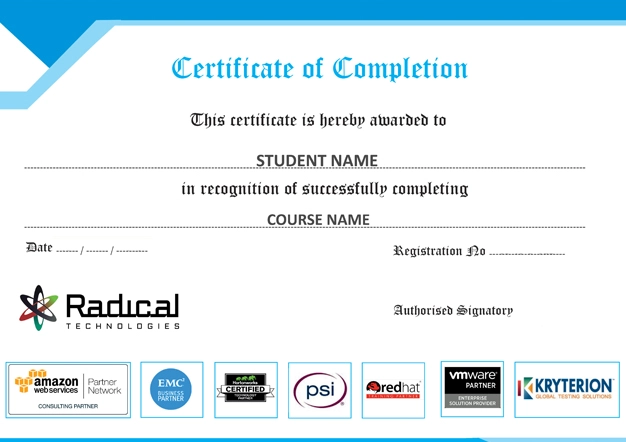


At Radical Technologies, we are committed to your success beyond the classroom. Our 100% Job Assistance program ensures that you are not only equipped with industry-relevant skills but also guided through the job placement process. With personalized resume building, interview preparation, and access to our extensive network of hiring partners, we help you take the next step confidently into your IT career. Join us and let your journey to a successful future begin with the right support.
At Radical Technologies, we ensure you’re ready to shine in any interview. Our comprehensive Interview Preparation program includes mock interviews, expert feedback, and tailored coaching sessions to build your confidence. Learn how to effectively communicate your skills, handle technical questions, and make a lasting impression on potential employers. With our guidance, you’ll walk into your interviews prepared and poised for success.
At Radical Technologies, we believe that a strong professional profile is key to standing out in the competitive IT industry. Our Profile Building services are designed to highlight your unique skills and experiences, crafting a resume and LinkedIn profile that resonate with employers. From tailored advice on showcasing your strengths to tips on optimizing your online presence, we provide the tools you need to make a lasting impression. Let us help you build a profile that opens doors to your dream career.

Infrastructure Provisioning
Implementing automated infrastructure provisioning and configuration management using Ansible. This may include setting up servers, networking devices, and other infrastructure components using playbooks and roles.

Applications Deployment
Automating the deployment and orchestration of applications across development, testing, and production environments. This could involve deploying web servers, databases. middleware, and other application components using Ansible

Continuous Integration
Integrating Ansible into CI/CD pipelines to automate software. build, test, and deployment processes. This may include automating the creation of build artifacts, running tests, and deploying applications to various environments.

I had an excellent learning experience with the S4 HANA Training In Bangalore. The trainers are very passionate about teaching, which made the sessions enjoyable.
The SAP S/4HANA Finance Course at Radical Technologies is highly recommended for anyone looking to boost their career in finance. The skills I acquired are invaluable.
The SAP S4 HANA Course In Bangalore helped me connect with like-minded professionals, expanding my network while enhancing my knowledge.
Participating in the S4 HANA Finance Training opened up new career opportunities for me. The trainers are industry veterans who share valuable real-world experiences.
I was particularly impressed with the SAP S4 HANA FICO Course materials. They are well-organized and provide a clear understanding of each topic.
The SAP S4 HANA FICO Training is worth every penny. I gained valuable insights and practical knowledge that I could immediately apply in my job.
Radical Technologies offers one of the best S4 HANA Training programs. The support provided throughout the course was exceptional.
I loved the flexibility of the SAP S4 HANA Training Online. It allowed me to learn at my own pace while still receiving excellent guidance from the instructors.
The hands-on approach of the SAP S/4HANA Finance Training made it easier for me to grasp practical applications of the concepts learned.
The SAP S4 HANA Finance Course was instrumental in my career advancement. I landed a better job shortly after completing my training at Radical Technologies.
I chose the SAP FICO S4 HANA Course because of the positive reviews, and it did not disappoint. The trainers are experts in their field and very approachable.
The SAP S/4 HANA Training In Bangalore helped me gain a strong foundation in finance management. The course structure is ideal for both beginners and experienced professionals.
Radical Technologies offers excellent SAP S4 HANA FICO Online Training. The interactive sessions kept me engaged, and I learned a lot from my peers.
The SAP S4 HANA Finance Online Training was well-organized, and I appreciated the availability of recorded sessions for revision. It was a fantastic learning experience!
I highly recommend the SAP S4 HANA Training In Bangalore for anyone serious about a career in finance. The training has equipped me with essential skills for the job market.
The SAP S4 HANA FICO Course at Radical Technologies is perfect for beginners. The instructors explain everything clearly, making complex topics easy to understand.
After completing the SAP S4 HANA Finance Training, I feel confident in my abilities to handle financial tasks efficiently in an SAP environment.
The SAP S4 HANA FICO Training provided me with the skills needed to excel in the finance domain. The hands-on projects were particularly beneficial.
I was searching for SAP S4 HANA Training Near Me, and I found Radical Technologies in Bangalore. Their training quality is unmatched, and I highly recommend them.
Radical Technologies is the go-to place for SAP S4 HANA FICO Online Training. The trainers are supportive and always ready to clarify doubts, ensuring a great learning experience.
Taking the SAP S4 HANA Finance Online Training was a game-changer for me. The flexibility of online sessions allowed me to balance my work and studies effectively.
The S4 HANA FICO Training program is comprehensive and well-structured. I appreciated the real-world examples shared by the trainers, which made the learning process enjoyable.
The SAP S4 HANA FICO Course offered at Radical Technologies in Bangalore provides a perfect blend of theory and hands-on experience, making it the best choice for anyone looking to advance their career.
I enrolled in the SAP S4 HANA Finance Course and was impressed by the depth of the material. The practical sessions really helped me grasp complex concepts easily.
The SAP S/4 HANA FICO Training at Radical Technologies in Bangalore exceeded my expectations. The instructors are knowledgeable, and the course content is very relevant to current industry standards.









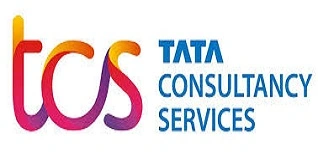




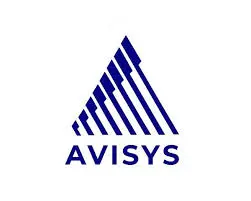





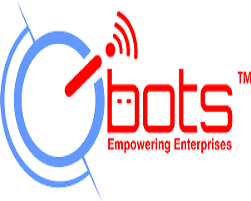




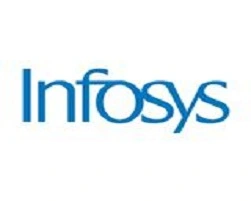
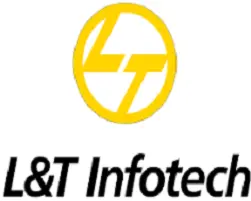
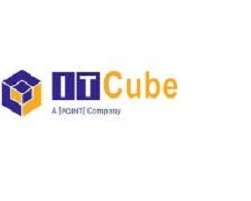

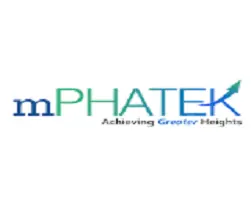
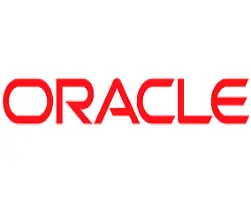







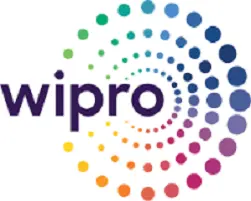
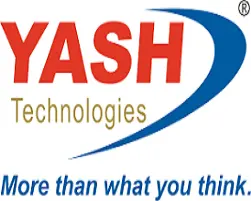
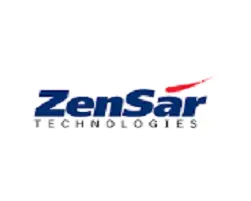
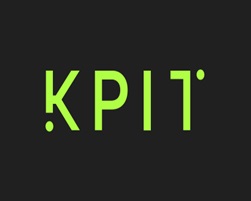

SAP S/4 HANA FICO is a module within SAP’s S/4 HANA suite that combines Financial Accounting (FI) and Controlling (CO) functionalities. It enables organizations to manage their financial processes in real-time, enhancing reporting, compliance, and decision-making capabilities.
Unlike SAP ECC, which is built on a traditional database, SAP S/4 HANA FICO leverages in-memory computing for faster data processing and analytics. It also introduces the Universal Journal, which integrates financial and controlling data into a single line item, simplifying reporting.
Key benefits include real-time financial reporting, streamlined financial processes, improved compliance, better data analytics, and enhanced integration with other SAP modules. These features help organizations make informed decisions more quickly and efficiently.
SAP S/4 HANA FICO integrates seamlessly with other modules such as Sales and Distribution (SD), Material Management (MM), Human Capital Management (HCM), and Supply Chain Management (SCM), enabling a holistic view of business operations.
The Universal Journal consolidates financial and controlling data into a single database table. This eliminates data redundancy and allows for real-time reporting across various dimensions, enabling users to access comprehensive financial insights easily.
Real-time analytics in SAP S/4 HANA FICO allows organizations to analyze financial data as it is generated. This capability supports immediate decision-making, enhances forecasting accuracy, and enables timely responses to changing business conditions.
SAP S/4 HANA FICO provides built-in compliance tools, such as audit trails and automated checks against regulatory standards. Organizations can customize these features to meet local and international compliance requirements, ensuring accurate financial reporting.
SAP S/4 HANA FICO allows for the generation of various financial reports, including balance sheets, profit and loss statements, cash flow statements, and customizable management reports. Users can create these reports in real-time based on current data.
Asset accounting in SAP S/4 HANA FICO enables organizations to track and manage fixed assets efficiently. This includes monitoring acquisition, depreciation, and disposal processes, which helps maximize asset utilization and ensure accurate financial reporting.
Yes, SAP S/4 HANA FICO supports multi-currency transactions, allowing organizations to conduct business across different countries while managing various currencies. The system provides tools for currency conversion, exchange rate management, and reporting.
Key components of the CO module include Cost Center Accounting, Profitability Analysis (CO-PA), Internal Orders, Activity-Based Costing, and Product Costing. These components help organizations monitor costs and improve financial planning and control.
SAP S/4 HANA FICO enhances cash flow management by providing real-time visibility into accounts receivable and payable, enabling organizations to optimize payment cycles and forecast cash requirements accurately, thus ensuring liquidity.
Implementing SAP S/4 HANA FICO involves several steps, including project planning, system configuration, data migration, user training, and ongoing support. Organizations should adopt a structured approach and involve stakeholders throughout the implementation process.
Yes, SAP S/4 HANA FICO is suitable for SMEs, as it provides scalable solutions that can grow with the business. Its user-friendly interface and real-time capabilities enable SMEs to enhance their financial management without the complexities of larger systems.
SAP S/4 HANA FICO users have access to a wealth of resources, including official SAP documentation, community forums, training courses, and certification programs. Additionally, SAP offers support services for troubleshooting and optimizing system performance.
Ambegaon Budruk | Aundh | Baner | Bavdhan Khurd | Bavdhan Budruk | Balewadi | Shivajinagar | Bibvewadi | Bhugaon | Bhukum | Dhankawadi | Dhanori | Dhayari | Erandwane | Fursungi | Ghorpadi | Hadapsar | Hingne Khurd | Karve Nagar | Kalas | Katraj | Khadki | Kharadi | Kondhwa | Koregaon Park | Kothrud | Lohagaon | Manjri | Markal | Mohammed Wadi | Mundhwa | Nanded | Parvati (Parvati Hill) | Panmala | Pashan | Pirangut | Shivane | Sus | Undri | Vishrantwadi | Vitthalwadi | Vadgaon Khurd | Vadgaon Budruk | Vadgaon Sheri | Wagholi | Wanwadi | Warje | Yerwada | Akurdi | Bhosari | Chakan | Charholi Budruk | Chikhli | Chimbali | Chinchwad | Dapodi | Dehu Road | Dighi | Dudulgaon | Hinjawadi | Kalewadi | Kasarwadi | Maan | Moshi | Phugewadi | Pimple Gurav | Pimple Nilakh | Pimple Saudagar | Pimpri | Ravet | Rahatani | Sangvi | Talawade | Tathawade | Thergaon | Wakad
I had an amazing experience with this service. The team was incredibly supportive and attentive to my needs. The quality of the work exceeded my expectations. I would highly recommend this to anyone looking for reliable and professional service."
I had an amazing experience with this service. The team was incredibly supportive and attentive to my needs. The quality of the work exceeded my expectations. I would highly recommend this to anyone looking for reliable and professional service."
I had an amazing experience with this service. The team was incredibly supportive and attentive to my needs. The quality of the work exceeded my expectations. I would highly recommend this to anyone looking for reliable and professional service."
I had an amazing experience with this service. The team was incredibly supportive and attentive to my needs. The quality of the work exceeded my expectations. I would highly recommend this to anyone looking for reliable and professional service."
I had an amazing experience with this service. The team was incredibly supportive and attentive to my needs. The quality of the work exceeded my expectations. I would highly recommend this to anyone looking for reliable and professional service."
Looking to boost your career in financial accounting and controlling? Enroll in our SAP S/4 HANA FICO Training, a comprehensive course designed to equip you with the skills needed to master SAP’s Financial Accounting (FI) and Controlling (CO) modules within the latest S/4 HANA environment. This certification course is curated for professionals aiming to advance their expertise in finance, controlling, and analytics using SAP’s powerful enterprise resource planning (ERP) system.
In today’s fast-evolving business landscape, companies are looking for professionals proficient in advanced financial management tools to optimize their processes. SAP S/4 HANA, with its in-memory computing and real-time processing, offers a cutting-edge solution. Mastering the FICO module within this system allows professionals to streamline financial operations, analyze data more efficiently, and deliver greater business value. This makes SAP S/4 HANA FICO one of the most sought-after skills in the global job market.
1. Financial Accounting (FI) Module:
General Ledger (GL): Understanding the core functionalities of GL accounting, including real-time integration with other modules.
Accounts Payable/Receivable: Managing customer/vendor invoices and transactions.
Asset Accounting (AA): Learn how to manage and maintain fixed assets for organizations.
Financial Statements: Generation of balance sheets, profit and loss statements, and tax reporting.
Bank Accounting: Management of banking transactions within the organization.
2. Controlling (CO) Module:
Cost Center Accounting (CCA): Monitoring and controlling costs within different departments.
Internal Orders: Tracking costs for specific tasks and projects.
Profitability Analysis (PA): Detailed analysis of profitability across different market segments.
Cost Element Accounting: Understand direct and indirect cost flows for more efficient financial planning.
Product Costing: Detailed configuration of product costing for businesses engaged in production.
Upon successful completion of the SAP S/4 HANA FICO Training, you will be ready to pursue roles such as:
Many of our graduates have secured lucrative roles in global companies due to their mastery of SAP S/4 HANA.
SAP S/4 HANA FICO (Financial Accounting and Controlling) is a powerful ERP solution that integrates core financial processes with real-time data analytics. Organizations across various sectors leverage SAP S/4 HANA FICO to streamline their financial operations, enhance decision-making, and improve compliance. Below, we delve into the key applications of SAP S/4 HANA FICO, showcasing its versatility and significance in modern business environments.
1. Real-Time Financial Reporting
One of the standout features of SAP S/4 HANA FICO is its ability to provide real-time financial reporting. This application enables organizations to:
Generate instantaneous financial statements, including balance sheets and profit and loss accounts.
Utilize real-time data analytics for insightful decision-making.
Access customizable dashboards that visualize key financial metrics, facilitating better business performance assessments.
2. Streamlined Accounts Payable and Receivable
SAP S/4 HANA FICO enhances the efficiency of accounts payable (AP) and accounts receivable (AR) processes, leading to improved cash flow management. Key applications include:
Automated invoice processing and payment workflows, reducing manual errors and processing times.
Comprehensive tracking of customer payments and outstanding invoices, ensuring timely collections.
Integration with payment gateways to facilitate seamless transactions and enhance vendor relationships.
3. Advanced Cost Management
The controlling (CO) module within SAP S/4 HANA FICO provides robust cost management tools that help organizations monitor and control expenses effectively. Key applications consist of:
Cost center accounting for tracking operational costs by department or project, promoting accountability.
Profitability analysis to assess the profitability of products, services, or customer segments, guiding strategic decisions.
Internal order management for monitoring costs associated with specific tasks or projects, enabling better budgeting and resource allocation.
4. Enhanced Asset Management
Managing fixed assets efficiently is critical for maximizing investment returns. SAP S/4 HANA FICO simplifies asset management through:
Asset accounting capabilities that automate the tracking, valuation, and depreciation of fixed assets.
Real-time insights into asset performance, helping organizations make informed investment decisions.
Streamlined processes for asset acquisition, disposal, and revaluation, reducing administrative overhead.
5. Regulatory Compliance and Risk Management
Organizations face increasing scrutiny from regulatory bodies. SAP S/4 HANA FICO aids in maintaining compliance and managing risks by:
Implementing built-in compliance checks that align financial processes with regulatory standards, reducing the risk of penalties.
Providing audit trails and detailed transaction histories for transparency and accountability.
Facilitating robust risk management frameworks that help identify, assess, and mitigate financial risks effectively.
6. Integration with Other Business Functions
The strength of SAP S/4 HANA FICO lies in its seamless integration with other SAP modules and business functions, such as:
Sales and Distribution (SD): Real-time integration with sales processes allows for accurate revenue recognition and customer account management.
Material Management (MM): Synchronization with procurement processes enables effective inventory management and reduces costs.
Human Capital Management (HCM): Integration with HR processes supports payroll management and employee-related financial reporting.
7. Predictive Analytics and Planning
Leveraging advanced analytics and machine learning capabilities, SAP S/4 HANA FICO offers predictive insights that empower organizations to:
Anticipate financial trends and forecast future performance based on historical data.
Conduct scenario planning and budgeting, enabling proactive financial management.
Optimize cash flow management by predicting cash requirements and ensuring liquidity.
8. Support for Global Operations
For organizations operating in multiple countries, SAP S/4 HANA FICO provides functionalities that support international financial management, including:
Multi-currency and multi-language capabilities for effective global financial reporting and analysis.
Compliance with local taxation and regulatory requirements, ensuring accurate financial operations across regions.
Centralized financial management, enabling companies to monitor and control finances across various subsidiaries and locations.
Welcome to Radical Technologies, the leading institute for SAP S/4 HANA FICO Training in Bangalore. Our mission is to equip professionals with the skills and knowledge they need to excel in the ever-evolving world of finance and technology. With a strong focus on practical training, we provide a comprehensive curriculum designed to meet the demands of the industry.
At Radical Technologies, we offer a variety of training options, including S4 HANA FICO Training, SAP S4 HANA Finance Training, and SAP S4 HANA FICO Online Training. Our courses are tailored to suit the diverse needs of learners, from beginners to seasoned professionals. Whether you prefer in-person instruction or the flexibility of SAP S4 HANA Finance Online Training, our expert trainers are here to guide you every step of the way.
Our SAP S4 HANA FICO Course covers essential topics such as financial accounting, controlling, and reporting, ensuring that you gain a solid understanding of SAP’s powerful functionalities. With our SAP FICO S/4 HANA Course, you will not only learn theoretical concepts but also engage in hands-on projects that simulate real-world scenarios.
We are proud to offer SAP S/4 HANA Training In Bangalore, providing a conducive learning environment in a city known for its vibrant tech ecosystem. Our training center is equipped with the latest technology and resources, ensuring that our students receive the best education possible.
For those looking for flexibility, our SAP S4 HANA Training Online and S4HANA Training Online options allow you to learn from anywhere at your convenience. Our SAP S4 HANA Finance Course is designed to fit around your schedule, making it easy to balance work and study.
With an emphasis on real-time applications and compliance, our SAP S/4HANA Finance Training prepares you for immediate deployment in the workplace. We also provide ongoing support and resources to help you succeed in your career after completing the training.
If you’re searching for SAP S4 HANA Training Near Me, look no further than Radical Technologies. Join our community of successful graduates who have advanced their careers through our top-tier training programs. Contact us today to learn more about our SAP S/4 HANA FICO Training offerings and start your journey towards becoming an SAP professional in Bangalore!

(Our Team will call you to discuss the Fees)
